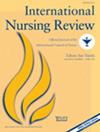The evolving role of nursing informatics in the era of artificial intelligence
Abstract
Aim
This narrative review explores the integration of artificial intelligence (AI) into nursing informatics and examines its impact on nursing practice, healthcare delivery, education, and policy.
Background
Nursing informatics, which merges nursing science with information management and communication technologies, is crucial in modern healthcare. The emergence of AI presents opportunities to improve diagnostics, treatment, and healthcare resource management. However, integrating AI into nursing practice also brings challenges, including ethical concerns and the need for specialized training.
Sources of evidence
A comprehensive literature search was conducted from January 2013 to December 2023 using databases like PubMed, Google Scholar, and Scopus. Articles were selected based on their relevance to AI's role in nursing informatics, particularly in enhancing patient care and healthcare efficiency.
Discussion
AI significantly enhances nursing practice by improving diagnostic accuracy, optimizing care plans, and supporting resource allocation. However, its adoption raises ethical issues, such as data privacy concerns and biases within AI algorithms. Ensuring that nurses are adequately trained in AI technologies is essential for safe and effective integration.
Implications for nursing practice and policy
Policymakers should promote AI literacy programs for healthcare professionals and develop ethical guidelines to govern the use of AI in healthcare. This will ensure that AI tools are implemented responsibly, protecting patient rights and enhancing healthcare outcomes.
Conclusion
AI offers promising advancements in nursing informatics, leading to more efficient patient care and improved decision-making. Nonetheless, overcoming ethical challenges and ensuring AI literacy among nurses are critical steps for successful implementation.

 求助内容:
求助内容: 应助结果提醒方式:
应助结果提醒方式:


